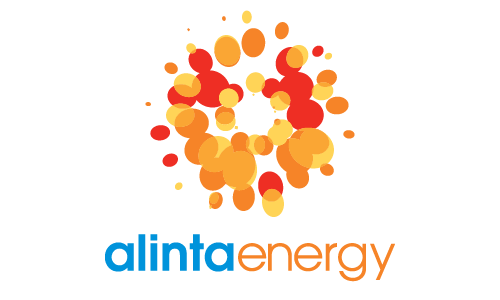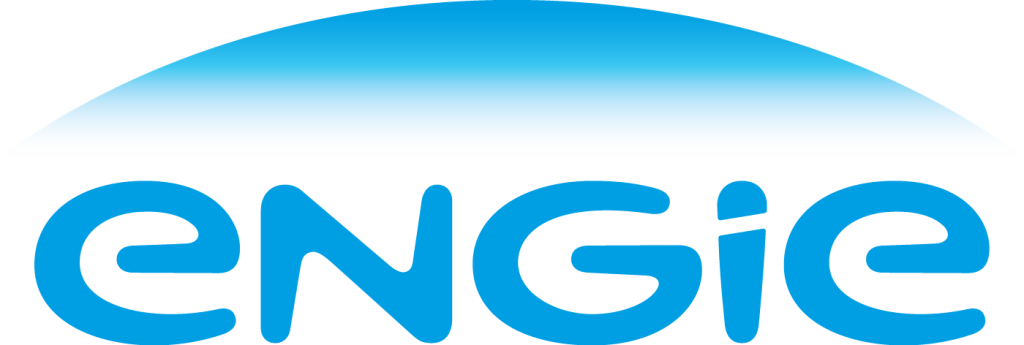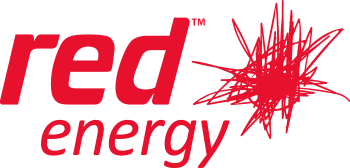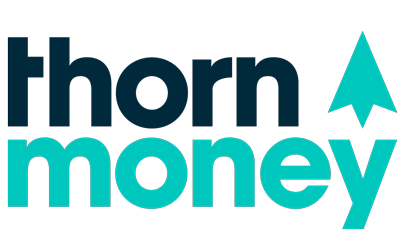Home > Energy Plans > Compare Business Energy Plans
Compare business energy plans here through Savvy to help you find a better deal for your energy bills.
Author
Savvy Editorial TeamFact checked













We’ve partnered with Econnex to bring you a range of energy plans to help you compare them.













We’ve partnered with Econnex to bring you a range of energy plans to help you compare them.






















Do you think you’re paying too much for your business energy bills? Your choice of electricity and gas provider can make a huge difference to your bottom line. However, with so many different electric companies and energy plans available on the market in Australia, it can be a time-consuming task to choose the right one for your business needs.
Savvy can save you time and money by offering a 100% free energy comparison service that enables you to compare, switch and save all in one place. Just provide a few details about the plan you’re after and within minutes you can compare energy plans side-by-side which are available in your area. Start the process with Savvy today to see if you can save on your electricity bills!
Comparing business energy plans is easy through Savvy. The choices you’ll have and the number of retailers who operate in your area will vary depending on which state or territory you live in, with residents of the Northern Territory and Western Australia having less choice when it comes to switching providers. This is because these areas are not part of the National Electricity Market (NEM) and have their own state-based energy rules and regulations.
However, for Aussies living in New South Wales, the Australian Capital Territory, Queensland, South Australia, Victoria and Tasmania, the process to find a better deal is simpler. When comparing business energy plans side-by-side, consider the following elements:
Overall cost of the plan
This should be detailed in the basic plan information document provided by the retailer. By law, retailers must quote the electricity reference price for average business usage in your area and show how their quote compares to this average figure, expressed as a percentage compared to the average. For example, one retailer may offer ‘6% less’ and another ‘4% less’ than the average price for your area. Naturally, 6% less is the better price option if all other factors are equal.
Tariffs
Tariffs describe the amount charged per unit of electricity (kWh) or gas (MJ) you use.
Electricity tariffs
There are various types of tariff charged for electricity, including:
Solar feed-in tariffs
A solar feed-in tariff is the rate at which an energy company pays you for the electricity generated by your solar panels and fed back into the grid. This rate varies according to:
Gas tariffs
When comparing gas charges, you may be charged a flat rate for all of the gas your business uses, or you may be charged a ‘block tariff’. A block tariff means you'll pay a set amount for the first block of gas you use and another rate for subsequent blocks. For example, the first 10 MJ/day block of gas you use may be charged at 3.65c/MJ, while the second block may be charged at 2.5c/MJ.
Supply charge
The supply charge, also known as a service charge or daily supply fee, is a fixed amount that retailers charge per day to cover the cost of supplying electricity or gas to your premises. It is typically billed on a daily basis, regardless of the amount of energy consumed. The supply charge covers the retailer’s costs associated with delivering energy to your business and is separate from usage charges, which are based on energy consumption.
Fees
Energy bills may include various fees in addition to the cost of the electricity or gas consumed. Common fees include supply charges, late payment fees, paper statement fees and disconnection or reconnection fees. Some plans may also have exit fees if you decide to switch providers before the end of your contract. It's important to review the terms and conditions of your energy plan to understand the fees associated with your bill.
Sign-up bonuses and special offers
When you switch energy plans, you may be eligible for additional benefits beyond cost savings. These benefits can include additional perks such as sign-up cash bonuses, access to rewards programs, discounts on energy services or internet plans or access to renewable energy options. It's worth exploring the special discount offers of different suppliers to see if they provide any additional benefits for your business operation.
Bundling offers
Some retailers may offer price discounts for those businesses which use one retailer for all their energy needs. Therefore, if you compare gas and electric company plans and find one retailer offers the best deal for both types of energy, you may consider bundling your energy together to take advantage of such discounts.
There are generally three types of business energy plans available to commercial customers; standard business plans, market business plans and customised business energy plans. This applies to those states which are part of the NEM.
Standard business contracts
These contracts offer standardised pricing which is determined by the NEM. The tariffs charged under this type of contract can only be changed every six months and there are no exit fees charged to switch away from this type of contract and find a better deal. However, they often don’t offer the best rates and may come with higher tariffs than a market contract.
Market business contracts
These contracts often come with discounts and additional benefits, but they lock the customer in for a set period. There are often exit fees if the contract is broken, but the tariffs charged can change at any time depending on the wholesale energy market. These are also known as variable rate contracts.
Customised business energy contracts
These contracts are offered to medium to large business energy users on an individual customised basis, by retailers who specialise in supplying energy to commercial customers. They are generally offered to customers who have complex energy requirements, potentially across multiple locations. These contracts are often handled by a separate business services division of energy providers.
Every home needs an electricity connection. From powering your fridge to your television, it's important to know the differences between electricity plans before you buy.
Who doesn't love a warm, cozy bedroom in winter or a hot shower on a cold morning? Natural gas helps heat things up in your home, so getting the right gas plan is crucial.
Solar panels are becoming increasingly common as Australians make a sustainable switch. Your connection to the grid is still important for when the sun isn't out, though.
Energy providers are now providing plans to Australians who want to make use of more environmentally friendly sources. These are often known as green energy plans.
It isn't all about homes, though. Electricity and gas are vital for small, medium and large businesses around Australia, so some retailers offer specialist plans to match.
You won’t need to pay a cent to compare a variety of energy plans online through Savvy, as it’s 100% free.
By filling out your form and providing a recent energy bill, you can have all the facts and figures worked out for you.
When you fill out your quote, you’ll be able to consider offers from some of the leading energy providers in Australia.
Residential and business energy plans differ in their target audience and so the features they offer. Retail energy plans are designed for residential customers and cater to their specific needs. They typically offer flexible contract terms, competitive pricing, and options to purchase renewable energy. Business energy plans are specifically designed for commercial and industrial customers. These plans consider the unique energy demands of businesses, such as higher consumption levels and specific peak usage demand. Business plans often offer features like flexible billing options, demand management strategies, and customised energy solutions to help reduce costs.
Yes – there are government incentives and rebates available for certain business energy plans, particularly those focused on renewable energy and energy efficiency. These incentives can vary depending on your location and the nature of your business. It's recommended to check with relevant government agencies in your state to find out about potential incentives or rebates that your business may be eligible for.
When comparing contract terms, consider factors such as the contract duration, if there are any early termination fees or penalties and options to renew the contract at the end of the contract term. Assess the flexibility and suitability of the contract terms based on your business's needs now and into the future.
Yes – you can compare business energy plans if you have multiple business locations. Just provide details about each of your location's energy usage and requirements individually, rather than combined. This will help you compare options for each site, allowing you to choose the most suitable energy plans for your individual locations. Some retailers offer special electricity plans for small businesses, so these may be worth comparing too.
Yes – many retailers offer small business gas plans which are tailored specifically to suit the needs of small business customers. Make it clear that you are a small business when comparing gas retailers so you’re offered the best commercial gas plans available in Australia.
Many electric companies offer green plans with varying degrees of renewable energy content. Some providers may offer plans with 100% renewable energy, which can be a good choice for business customers who want to work towards becoming carbon neutral and reduce their carbon footprint. If you’re focused on reducing your business’ carbon footprint, it may be worth comparing offers based on how environmentally friendly they are.
In most cases, you won't need to install a new gas or electricity meter or additional equipment to switch business energy plans. The switch primarily involves changing your energy retailer and adjusting your billing arrangements accordingly.
Disclaimer:
Savvy is partnered with Econnex Comparison (CIMET Sales Pty Ltd, ABN 72 620 395 726) to provide readers with a variety of energy plans to compare. We do not compare all retailers in the market, or all plans offered by all retailers. Savvy earns a commission from Econnex each time a customer buys an energy plan via our website. We don’t arrange for products to be purchased directly, as all purchases are conducted via Econnex.
Any advice presented above is general in nature and doesn’t consider your personal or business objectives, needs or finances. It’s always important to consider whether advice is suitable for you before purchasing an energy plan. For further information on the variety of energy plans compared by Econnex, or how their business works, you can visit their website.
Quantum Savvy Pty Ltd (ABN 78 660 493 194) trades as Savvy and operates as an Authorised Credit Representative 541339 of Australian Credit Licence 414426 (AFAS Group Pty Ltd, ABN 12 134 138 686). We are one of Australia’s leading financial comparison sites and have been helping Australians make savvy decisions when it comes to their money for over a decade.
We’re partnered with lenders, insurers and other financial institutions who compensate us for business initiated through our website. We earn a commission each time a customer chooses or buys a product advertised on our site, which you can find out more about here, as well as in our credit guide for asset finance. It’s also crucial to read the terms and conditions, Product Disclosure Statement (PDS) or credit guide of our partners before signing up for your chosen product. However, the compensation we receive doesn’t impact the content written and published on our website, as our writing team exercises full editorial independence.
For more information about us and how we conduct our business, you can read our privacy policy and terms of use.
© Copyright 2024 Quantum Savvy Pty Ltd T/as Savvy. All Rights Reserved.
Our consultant will get in touch with you shortly to discuss your finance options.
